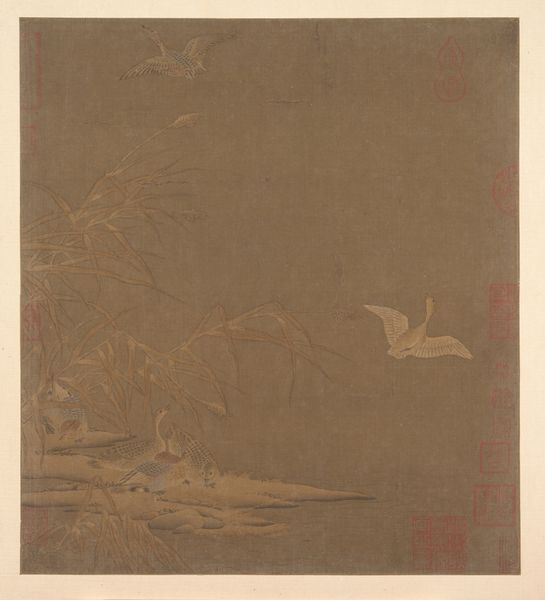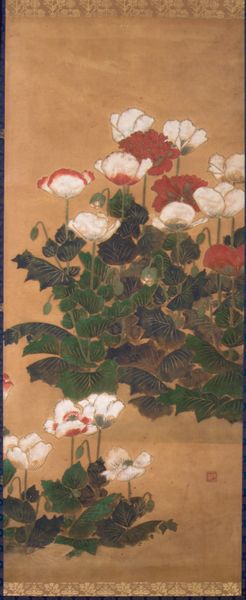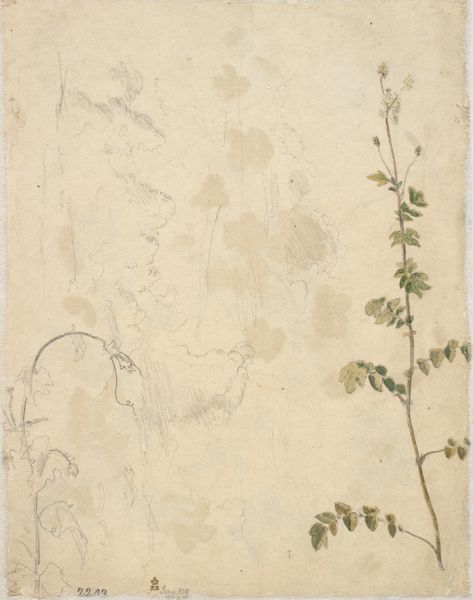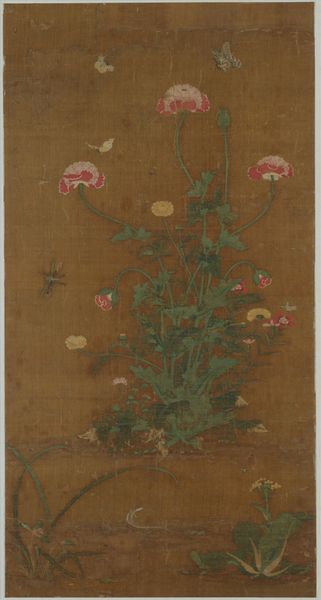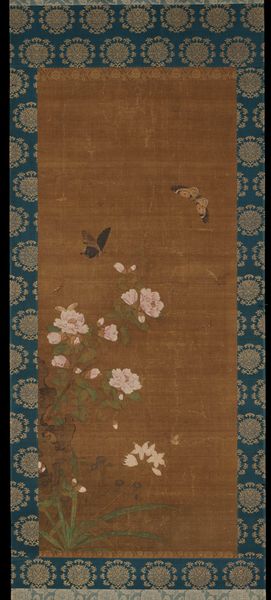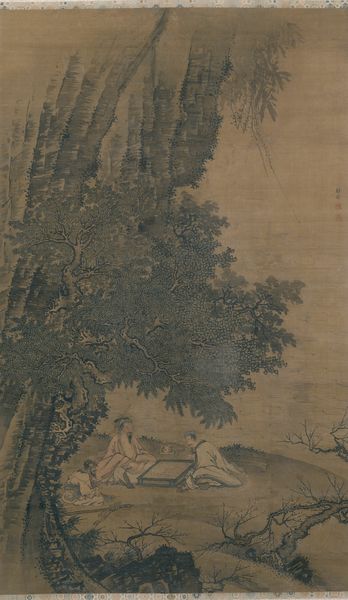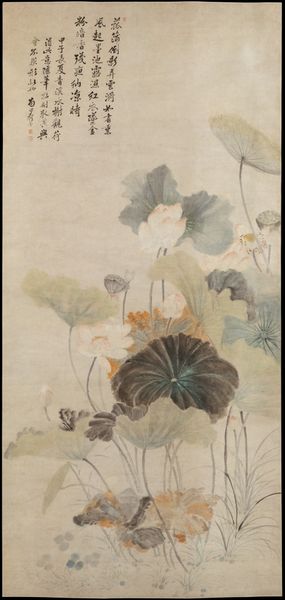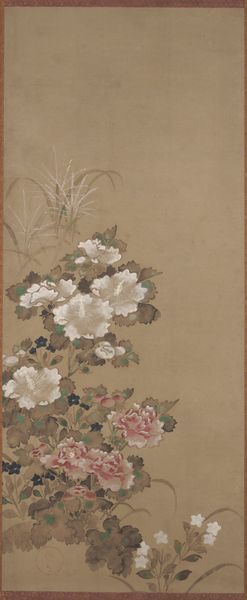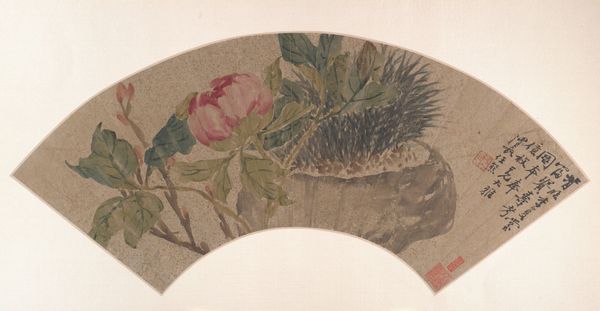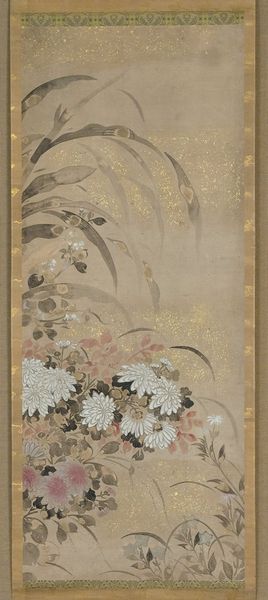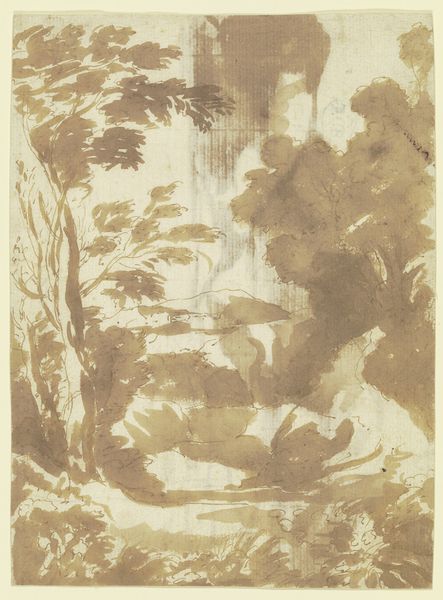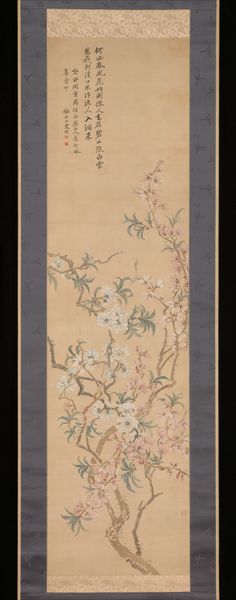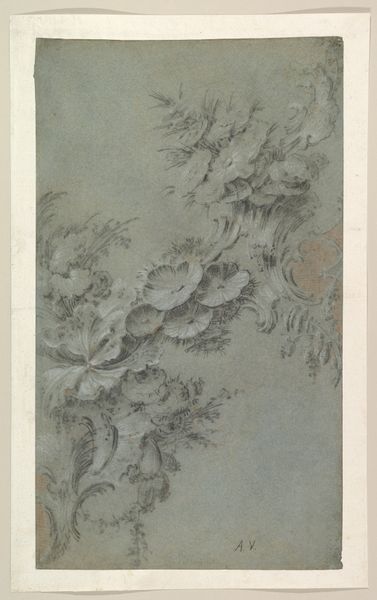
tempera, painting
#
medieval
#
tempera
#
painting
#
asian-art
#
landscape
#
figuration
#
21_yuan-dynasty-1271-1368
#
orientalism
#
china
#
realism
Dimensions: Image: 66 7/8 x 40 1/4 in. (169.9 x 102.2 cm) Overall with mounting: 103 x 41 1/4 in. (261.6 x 104.8 cm) Overall with knobs: 103 x 45 7/8 in. (261.6 x 116.5 cm)
Copyright: Public Domain
Editor: Here we have “Peahen and Hibiscus,” a tempera painting likely from the Yuan dynasty, sometime between 1334 and 1366. The color palette seems so warm and limited; it makes the details in the composition stand out even more. What strikes you most about the construction of this piece? Curator: Immediately, the surface texture grabs my attention. Note how the tempera medium contributes to the overall flatness, a deliberate choice which accentuates the planar qualities of the image. This contrasts with a traditional landscape. Notice the rhythmic arrangements of the floral and avian forms. Editor: Rhythmic arrangements? Can you expand on that a little? Curator: Consider how the artist distributes the visual weight, the positioning of the peahen in relation to the clusters of hibiscus blossoms. Observe the birds placed asymmetrically above the other objects. This careful placement creates an intricate pattern, a subtle but persistent rhythm. What does this constructed visual structure suggest? Editor: Perhaps a constructed harmony? The peahen appears to have equal footing to the Hibiscus, which given their actual relative presence, feels like a significant choice. Curator: Precisely! Through this artistic manipulation of form and space, the painting transcends mere representation, achieving a sophisticated formal balance. What began as observation becomes theory. Editor: I hadn't noticed how much that choice influences the impression it makes! That consideration of balance has opened a door to looking at art differently. Curator: Indeed. The essence of art often resides in its structural and material choices.
Comments
No comments
Be the first to comment and join the conversation on the ultimate creative platform.
